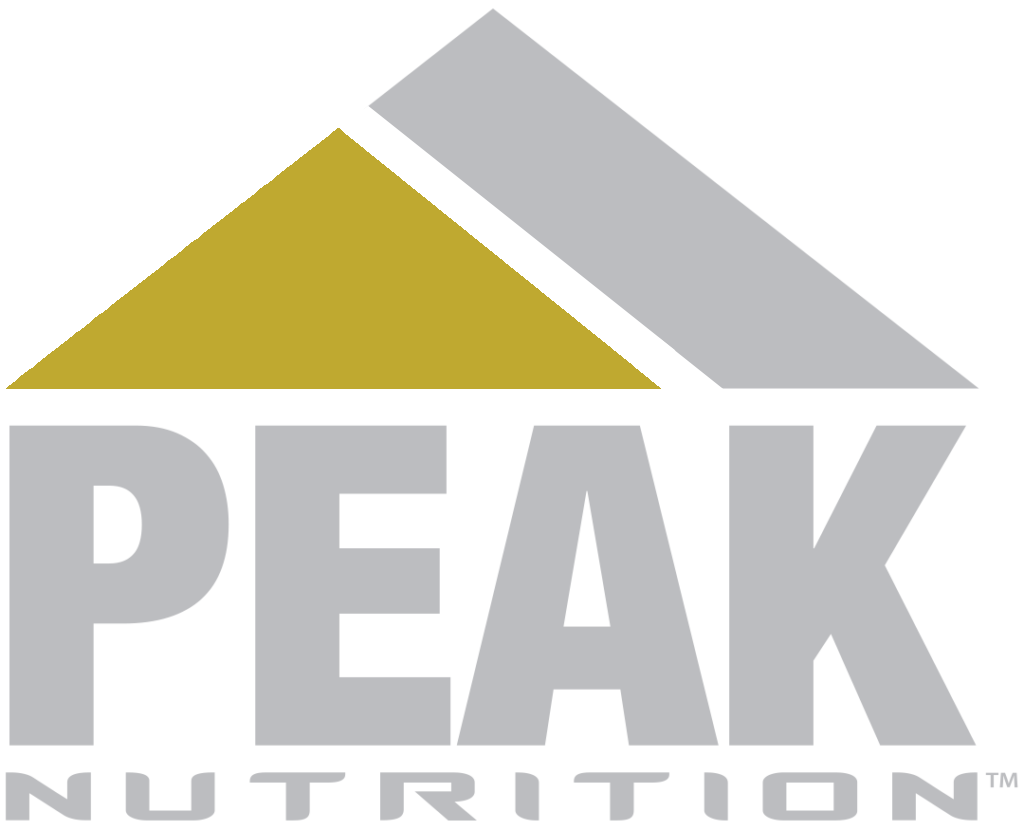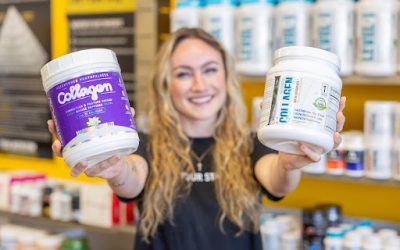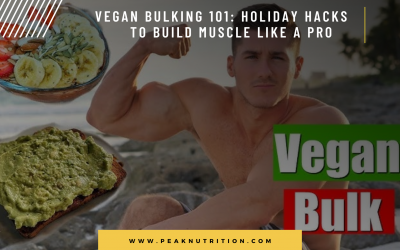At Peak Nutrition, we believe in providing our customers with the highest quality supplements to help them achieve their health and fitness goals. One supplement that has garnered significant attention in recent years is collagen protein. Known for its benefits in enhancing skin, hair, and joint health, collagen protein is a versatile addition to any supplement regimen. In this comprehensive guide, we will explore what collagen protein is, how it differs from whey protein, and the myriad ways it can enhance your skin, hair, and joint health.
What is Collagen Protein?
Understanding Collagen
Collagen is the most abundant protein in the human body, accounting for about one-third of its protein composition. It is a major component of connective tissues, such as skin, muscles, tendons, and ligaments, providing them with structure, strength, and elasticity. There are at least 16 types of collagen, but 80-90% of the collagen in the body consists of types I, II, and III.
Collagen Protein Supplements
Collagen protein supplements are derived from animal sources, primarily bovine (cow), porcine (pig), or marine (fish). These supplements are hydrolyzed, meaning the collagen is broken down into smaller peptides, making it easier for the body to absorb and utilize. These hydrolyzed collagen peptides are often found in powder or capsule form and can be added to various foods and beverages.
Natural Sources of Collagen
While collagen protein supplements are a convenient way to boost your collagen intake, it’s also beneficial to consume foods rich in collagen or that support collagen production. Some natural sources of collagen include:
- Bone broth
- Chicken skin
- Fish skin
- Egg whites
Additionally, certain nutrients play a crucial role in collagen synthesis, including vitamin C, zinc, and copper. Foods rich in these nutrients, such as citrus fruits, nuts, and seeds, can help enhance the body’s natural collagen production.
Collagen Protein vs. Whey Protein
What is Whey Protein?
Whey protein is a complete protein derived from milk during the cheese-making process. It contains all nine essential amino acids, making it an excellent source of protein for muscle repair and growth. Whey protein is popular among athletes and fitness enthusiasts for its rapid absorption and high biological value.
Key Differences Between Collagen and Whey Protein
While both collagen and whey protein are beneficial, they serve different purposes and offer unique benefits:
Amino Acid Profile
- Collagen Protein: Collagen is rich in specific amino acids like glycine, proline, and hydroxyproline, which are crucial for supporting skin, hair, nails, and joint health. However, collagen is not a complete protein as it lacks some essential amino acids.
- Whey Protein: Whey protein is a complete protein containing all essential amino acids, making it ideal for muscle protein synthesis and recovery.
Absorption and Utilization
- Collagen Protein: Hydrolyzed collagen peptides are easily absorbed and utilized by the body, particularly in tissues that need repair and regeneration, such as skin, hair, and joints.
- Whey Protein: Whey protein is rapidly absorbed, making it excellent for post-workout recovery and muscle building.
Benefits
- Collagen Protein: Enhances skin elasticity, reduces wrinkles, strengthens hair and nails, and supports joint health and mobility.
- Whey Protein: Promotes muscle growth and repair, supports immune function, and aids in weight management.
When to Use Each Protein
- Collagen Protein: Best for individuals looking to improve skin, hair, and joint health or those recovering from injuries affecting connective tissues.
- Whey Protein: Ideal for athletes, bodybuilders, and anyone seeking to enhance muscle mass, strength, and overall recovery.
How Collagen Protein Enhances Skin Health
Skin Structure and Collagen
The skin is the largest organ in the body and consists of three main layers: the epidermis, dermis, and hypodermis. Collagen is predominantly found in the dermis, where it provides structural support, elasticity, and firmness. As we age, collagen production naturally declines, leading to signs of aging such as wrinkles, sagging skin, and reduced elasticity.
Benefits of Collagen Protein for Skin

Improved Skin Elasticity
Collagen protein supplements can help improve skin elasticity by increasing collagen density in the dermis. This results in firmer, more youthful-looking skin. Studies have shown that individuals who take collagen supplements experience significant improvements in skin elasticity and moisture levels.
Reduction in Wrinkles and Fine Lines
Regular consumption of collagen protein can reduce the appearance of wrinkles and fine lines. By stimulating collagen production and supporting skin structure, collagen supplements can smooth out wrinkles and promote a more even skin texture.
Enhanced Hydration
Collagen helps maintain the skin’s hydration levels by supporting the skin barrier function. This barrier prevents moisture loss and keeps the skin hydrated. Supplementing with collagen protein can lead to improved skin hydration, reducing dryness and roughness.
Scientific Evidence
Several studies support the benefits of collagen protein for skin health. For example, a study published in the “Journal of Cosmetic Dermatology” found that women who consumed collagen peptides for 8 weeks experienced significant improvements in skin elasticity, moisture, and roughness compared to a placebo group. Another study in “Skin Pharmacology and Physiology” reported a reduction in eye wrinkle volume in women who took collagen supplements for 12 weeks.
Sources: Science Direct | Research Gate
How Collagen Protein Enhances Hair Health
Hair Structure and Collagen
Hair is primarily composed of a protein called keratin, but collagen plays a supportive role in maintaining hair health. Collagen provides the amino acids needed for keratin production and supports the structural integrity of the hair follicles.
Benefits of Collagen Protein for Hair

Strengthening Hair
Collagen protein supplements can strengthen hair by providing the necessary amino acids for keratin synthesis. This results in stronger, more resilient hair strands that are less prone to breakage and split ends.
Promoting Hair Growth
Collagen supports the health of the dermis, the layer of skin where hair follicles are located. By maintaining the structural integrity of the dermis, collagen can promote a healthy environment for hair growth. Some studies suggest that collagen supplements can increase the growth phase of hair follicles, leading to thicker and fuller hair.
Preventing Hair Thinning and Loss
As we age, the natural decline in collagen production can contribute to hair thinning and loss. Supplementing with collagen protein can help counteract these effects by supporting hair follicle health and promoting the growth of new hair.
Scientific Evidence
Research on the direct effects of collagen on hair health is still emerging, but there is evidence to suggest its benefits. A study published in the “Journal of Drugs in Dermatology” found that a supplement containing collagen peptides improved hair growth and density in women with thinning hair. Another study in “Archives of Dermatological Research” reported that collagen supplements increased the diameter of hair fibers, leading to thicker hair.
How Collagen Protein Enhances Joint Health

Joint Structure and Collagen
Joints are complex structures composed of cartilage, ligaments, and tendons, all of which rely on collagen for their integrity and function. Collagen provides the tensile strength needed for these tissues to withstand stress and maintain mobility.
Benefits of Collagen Protein for Joints
Supporting Cartilage Health
Cartilage is a connective tissue that cushions joints and allows for smooth movement. It is primarily composed of type II collagen. Supplementing with collagen protein can help maintain cartilage health by providing the necessary building blocks for its repair and regeneration. This can reduce the risk of joint degeneration and conditions like osteoarthritis.
Reducing Joint Pain and Inflammation
Collagen protein has been shown to reduce joint pain and inflammation in individuals with conditions like osteoarthritis and rheumatoid arthritis. By supporting cartilage health and reducing inflammation, collagen supplements can improve joint function and mobility.
Enhancing Recovery and Mobility
For athletes and active individuals, collagen protein can enhance recovery from joint injuries and improve overall joint mobility. By promoting the repair of damaged connective tissues, collagen supplements can help prevent further injury and support optimal joint function.
Scientific Evidence
Numerous studies have demonstrated the benefits of collagen protein for joint health. A study published in “Current Medical Research and Opinion” found that athletes who took collagen supplements experienced significant reductions in joint pain and improvements in joint function compared to a placebo group. Another study in “Osteoarthritis and Cartilage” reported that collagen supplementation improved cartilage thickness and reduced pain in individuals with osteoarthritis.
How to Use Collagen Protein to Reach Your Fitness Goals
Incorporating Collagen Protein into Your Diet
Collagen protein is a versatile supplement that can be easily incorporated into your diet. Here are some practical ways to use collagen protein:
- Smoothies and Shakes: Add a scoop of collagen protein powder to your favorite smoothie or shake for a protein boost.
- Coffee and Tea: Mix collagen protein powder into your morning coffee or tea for a convenient way to start your day.
- Baking: Use collagen protein powder as an ingredient in baked goods like muffins, pancakes, and protein bars.
- Soups and Stews: Stir collagen protein powder into soups and stews to enhance their nutritional value.
Recommended Dosage
The recommended dosage of collagen protein varies depending on the specific product and individual needs. However, a common dosage range is 2.5 to 15 grams per day. It’s important to follow the manufacturer’s instructions and consult with a healthcare professional if you have any concerns.
Combining Collagen Protein with Other Supplements
Collagen protein can be combined with other supplements to enhance its benefits. Here are a few examples:
- Vitamin C: Vitamin C is essential for collagen synthesis, so taking a vitamin C supplement alongside collagen protein can boost its effectiveness.
- Hyaluronic Acid: Hyaluronic acid is a substance that helps retain moisture in the skin and joints. Combining it with collagen protein can enhance skin hydration and joint lubrication.
- Glucosamine and Chondroitin: These supplements support joint health and can be combined with collagen protein to further promote joint function and reduce pain.
Maintaining a Balanced Diet and Healthy Lifestyle
While collagen protein supplements can provide significant benefits, it’s essential to maintain a balanced diet and healthy lifestyle to support overall health and fitness. Ensure you consume a variety of nutrient-dense foods, stay hydrated, exercise regularly, and get enough sleep.
Conclusion
Collagen protein is a powerful supplement that can enhance skin, hair, and joint health, making it an excellent addition to your health and fitness regimen. By understanding the unique benefits of collagen protein and how it differs from other proteins like whey, you can make informed choices to support your specific health goals. Whether you’re looking to improve skin elasticity, strengthen hair, or support joint function, collagen protein can help you achieve visible and lasting results.
At Peak Nutrition, we are committed to providing high-quality supplements that deliver real results. Incorporate collagen protein into your daily routine and experience the transformative benefits for yourself. Visit our website to explore our range of collagen protein supplements and start your journey to better skin, hair, and joint health today.
Already started taking collagen supplements, but are unsure if it’s working? Check out this blog to learn how long it takes to start seeing results!
Remember, your health and fitness journey is unique, and it’s essential to find the right supplements and strategies that work for you. Consult with healthcare professionals, stay informed, and make choices that align with your individual needs and goals. With the right approach, you can achieve optimal health and well-being, supported by the powerful benefits of collagen protein.




